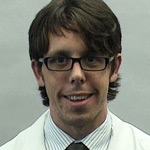Leading the way in interprofessional education
Interprofessional Practice EventCollaborative Solutions to Improve Patient Outcomes June 13, 2014 Local, state and national leaders in interprofessional health care education and delivery will share their knowledge. CME credit available. Register now |
The health care model of tomorrow is a team. Physicians, nurses, pharmacists, physician assistants, physical therapists and dietitians will work together to improve the health of their patients.
UNT Health Science Center at Fort Worth is training new health care providers – and those already practicing – for this collaborative practice. A full spectrum of interprofessional education events and ongoing programs allows providers in various fields to literally put their heads together to improve patient outcomes.
One of those programs is a collaborative medical/dietetic rotation in Pediatrics at the UNT Health Patient Care Center. During the spring semester just finished, senior Dietetics students from Texas Christian University worked alongside students from the Texas College of Osteopathic Medicine. They advised patients and their parents on good food choices.
 |
| Sean Chamberlain |
Fourth-year TCOM student Sean Chamberlain said the rotation taught him more about how diet augments preventive medicine, and how to include a dietitian in a treatment plan. His interprofessional partner, recent TCU graduate Stephanee Hooper, said she learned how to collaborate with a physician.
The national trend toward interprofessional education is clear. “The American Osteopathic Association, which licenses DOs, soon will decide which interprofessional competencies physicians must show, and our university will be ready,” said UNTHSC Interprofessional Education Director David Farmer, PhD.
Among recent UNTHSC events training current providers was the 28th Annual North Texas Family Medicine Update, which included TEAMstepps training. This is a national program designed to reduce medical errors by fostering communication and overcoming hierarchical barriers among health care team members.
Several times each year, UNTHSC hosts workshops that bring together hundreds of students from various disciplines at several schools. In interprofessional teams, they work on case studies to decide the best way to treat complicated conditions with the best outcome and no errors.
This learning model will become more prevalent each semester at schools nationwide.
Said Sean Chamberlain, “Teamwork makes medicine more effective and more efficient. The knowledge base has grown too large for anyone to be a ‘cowboy’ doctor on his own.”





Social media